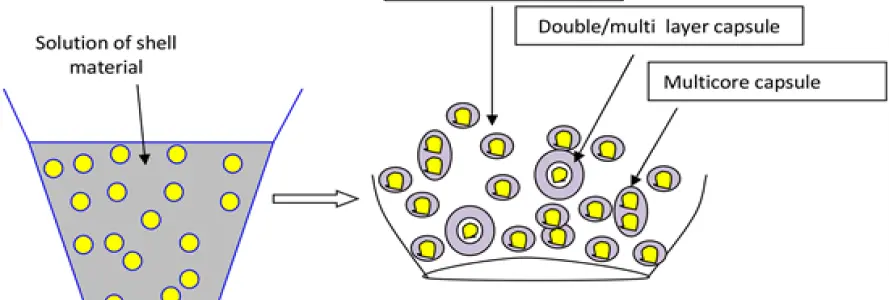Microencapsulated Raising Agents
PRODUCTS
Microencapsulated Raising Agents
Encapsulated Sodium Bicarbonate
Raising agents are substances used in baked goods to produce carbon dioxide. According to the Codex Alimentarius Commission (CAC), they are defined as “substances that release gas in food, causing the dough to expand“. These compounds are also known as “leavening agents” The rising process happens due to carbon dioxide produced through fermentation or chemical reactions. Additionally, incorporating air into the dough during mixing and the steam generated from the dough’s moisture during high-temperature baking also contribute to the rise.
Chemical leavening typically involves the use of food acids and sodium bicarbonate.
Encapsulated sodium bicarbonates are a fantastic innovation that has revolutionized frozen bakery products. In products like cakes, cookies, muffins, and scones, it’s crucial that the leavening agents don’t react during the frozen shelf life before baking. To ensure this, bicarbonate particles are coated with fat using a microencapsulation technique. When the products are placed in the oven, the capsules melt, and the sodium bicarbonate reacts with the food acid in the recipe, creating the necessary gas release.

